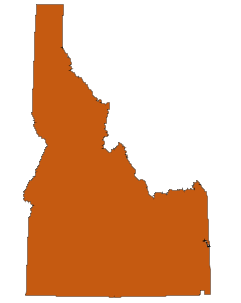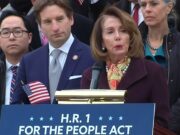Via Electronic Mail
The Honorable Patti Anne Lodge
The Honorable Mark Harris
RE: Constitutional and Practical Concerns with S. 1183 (Revised “Electioneering Communication” Expansion Bill)
Dear Chair Lodge, Vice Chair Harris, and Members of the Senate State Affairs Committee:
On behalf of the Institute for Free Speech (IFS),[1] I submit this follow up to my testimony to highlight our continued concerns with a number of provisions in S. 1183,[2] a revised version of S. 1114, which I discussed with this Committee on February 20, 2019.[3] In addition to the new issues I describe below, my comments incorporate by reference the concerns I outlined in my prior testimony.
While we appreciate the Committee’s consideration of the concerns expressed by the Institute for Free Speech and others, the changes in S. 1183 are nowhere near sufficient to address the many issues with this legislation. S. 1183 does nothing to rectify concerns about the expanded “electioneering communication” definition’s application to speech in virtually any medium that mentions a candidate – especially on the internet or “social media” – and the lack of a targeting requirement for such speech. Instead, the bill makes changes to the “electioneering communication” window and the disclosures required of those groups that make such communications. But neither change satisfactorily addresses the constitutional concerns with the legislation.
While the new 50-day pre-primary and 90-day pre-general “electioneering communication” window[4] is shorter than that proposed in S. 1114, it is still far too long. The new window comprises 140 days of the year, including possibly the end of a legislative session – when communications about legislation are at their most important. For example, the primary window in 2018 would have started on March 26. The Legislature’s sine die target was March 27 last year.
The end of the legislative session is when speech is most needed as legislators rush to pass bills – particularly controversial measures. This is the time when last minute meetings and conferences in the Capitol need the voice of organizations expert in important areas of public policy. S. 1183 will force registration and disclosure for speaking about bills at this crucial time. In years where there are special sessions, interim working groups, or the Legislature adjourns past its target date, the registration window will still apply, keeping organizations silent. While the window is much too long prior to the general election as well, the 50-day pre-primary window is especially problematic.
Though the Institute applauds the Committee’s attempts to limit the disclosures required on electioneering communication reports to those who gave for the purpose of furthering a particular communication, the language in § (3)(1)(c)(ii) introduces a massive loophole. That provision requires those making electioneering communications to identify donors of $50 or more if “the donation from such person is used by the reporting person for the purpose of furthering an electioneering communication.” That’s an enormous expansion of the earmarking provision in subsection (i) and undermines the state’s interest in information about donors giving for electioneering communications.
The most generous reading of subsection (ii) would be, “if you fund the communication from your general treasury, you have to assign a donor to that expenditure, but you can choose whom.” But such disclosure would be misleading, because the group is now randomly assigning a donor who did not earmark their funds for any electioneering communications. And it is equally likely that a regulator would interpret this language to demand that a group running an electioneering communication would need to disclose all its donors of $50 or more (since they cannot determine what specific donation was used to fund a particular communication), or as many of its donors that amount to the cost of the communication, or any other scheme because the proposed statutory language is so ambiguous.
Simply put, the language in subsection (ii) undoes the clarifying work of subsection (i) and gives an incredible amount of latitude to regulators to determine what donors need to be disclosed when a group makes an electioneering communication. The inevitable outcome will be to silence many groups from voicing their opinions on issues of public importance in Idaho. The First Amendment cannot allow such vague language that still silences nonprofit speakers.
* * *
The Institute appreciates the Committee’s attempts at rectifying the serious issues with S. 1114, but the changes in S. 1183 do little to improve the constitutional and practical problems underlying the measure’s expansion of Idaho’s existing electioneering communication definition. The bill still makes it far too easy for a nonprofit to face stringent regulation any time it speaks about a policy issue. Indeed, in some ways, the bill makes matters even worse by adding ambiguous language that provides an opportunity for inconsistent enforcement by state regulators. S. 1183 still needs significant work and should be further revised. Should you have any further questions, please contact me at (703) 894-6800 or by e-mail at tmartinez@ifs.org.
Respectfully submitted,
Tyler Martinez
Attorney
[1] The Institute for Free Speech is a nonpartisan, nonprofit § 501(c)(3) organization that promotes and protects the First Amendment political rights of speech, press, assembly, and petition. Originally known as the Center for Competitive Politics, it was founded in 2005 by Bradley A. Smith, a former Chairman of the Federal Election Commission. In addition to scholarly and educational work, the Institute is actively involved in targeted litigation against unconstitutional laws at both the state and federal levels. Its attorneys have secured judgments in federal court striking down laws in Colorado, South Dakota, and Utah on First Amendment grounds. The Institute is currently involved in litigation against California, Connecticut, Massachusetts, Missouri, South Dakota, Tennessee, and the federal government.
[2] Senate Bill No. 1183, 65th Leg., First Reg. Sess. (Idaho 2019) (“S. 1183”).
[3] See Tyler Martinez, Written Testimony of Tyler Martinez on Constitutional and Practical Concerns with Idaho S. 1114 (“Electioneering Communication” Expansion), Institute for Free Speech (Feb. 20, 2019) available at https://www.ifs.org/wp-content/uploads/2019/02/2019-02-20_IFS-Senate-State-Affairs-Testimony_ID_S-1114_EC-Statute-Expansion.pdf.
[4] S. 1183 § 1(6)(a).














